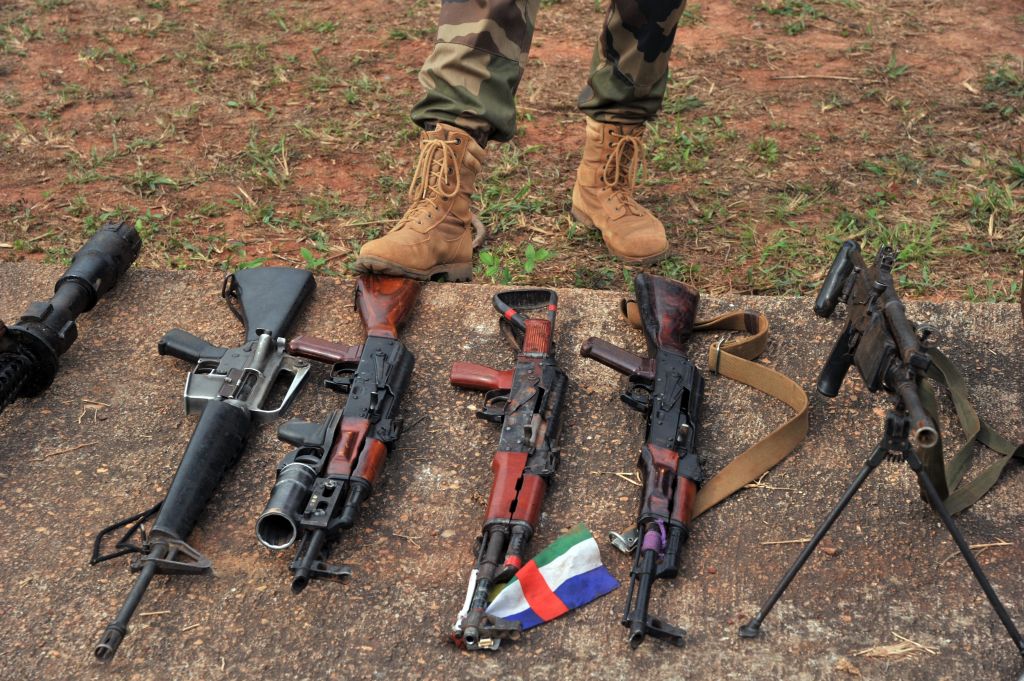ADF STAFF
The recent lifting of the United Nations’ 11-year-old arms embargo on the Central African Republic has been praised as a diplomatic victory but has also raised concerns for its potential to worsen insecurity across the region.
“The Central African security problem cannot be solved simply by importing arms,” the editors of Corbeau News Centrafrique wrote recently.
Corruption, a lack of discipline within the Central African Armed Forces, and the government’s continued dependence on Russian mercenaries remain major obstacles to peace, according to the Corbeau editors.
President Faustin-Archange Touadéra invited Russia’s Africa Corps, then the private military corporation known as the Wagner Group, into the CAR in 2018. The mercenaries were ostensibly hired to train its military to fight rebels with the Coalition of Patriots for Change (CPC) trying to reinstall former President François Bozizé, who lives in exile in Guinea-Bissau and is subject to an international arrest warrant.
Bozizé was driven from office in 2013. The U.N. imposed its arms embargo that same year. The country has been at war ever since.
“For years, the Touadéra regime has blamed the arms embargo for its inability to restore security,” the Corbeau editors wrote. “Yet lifting the embargo has not put an end to the violence.”
The former Wagner Group has become a major player in the violence in the CAR. Since December 2020, Russian mercenaries have killed more than 900 civilians, making them the deadliest group in the country, according to the Armed Conflict Location & Event Data Project.
Russian mercenaries originally began as unarmed advisers. Over time, however, Russia has exploited a lack of enforcement of the embargo and illegally brought weapons into the country, often under the guise of defending its mining operations there.
Analyst Dami Fakolujo, writing for Spheres of Influence, recently noted that the embargo and other measures aimed at stopping weapon sales failed partly because other countries failed to enforce it.
Loopholes that allowed the national military to purchase weapons meant those same weapons frequently turned up in rebels’ hands. Rebel groups and their supporters routinely smuggled weapons and ammunition into the CAR from the Democratic Republic of the Congo and Sudan.
“Additionally, countries like Russia blatantly disregard these embargoes, leading to an inability to tackle the complex socioeconomic causes of the weapons trade,” Fakolujo wrote.
Despite the embargo, in 2017 the CAR was found to have the second-highest amount of illegal small arms and light weapons among nine African countries studied. Some of those weapons came from Chad and the DRC, according to the Small Arms Survey, which tracks the trafficking on such weapons.
CAR authorities and their supporters at the U.N. argued for many years that the arms embargo put them at a disadvantage against rebel groups. In lifting the arms embargo, the U.N. still banned weapons sales to armed groups through July 2025. It also kept in place targeted sanctions on certain groups and individuals until that time.
The lifting of the U.N. embargo coincides with the ongoing collapse of the CPC. In recent months, the group has fractured and weakened. At least one faction approached the government to begin peace talks in August. Other CPC factions and up to a dozen other rebel groups continue to attack civilians.
Experts say the lifting of the CAR’s arms embargo could lead to more insecurity by increasing the flow of weapons across borders, particularly into Sudan.
Sudan’s Rapid Support Forces controls the Am Dafok border crossing with the CAR and uses that capacity to bring both weapons and fighters from the CAR.
“This bleak picture shows that beyond calls for disarmament and announcements of the lifting of the embargo, the Central African Republic is still far from peace and stability,” the Corbeau editors wrote. “Violence continues to ravage the country, exacerbated by the forces supposed to combat it.”

